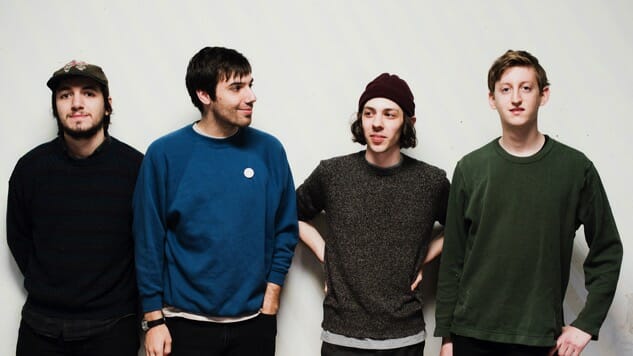LVL UP: The Best of What’s Next

Sure, it’s easy to pass time in the tour van by tossing around names of dream record labels. But when Sub Pop actually comes calling, and it’s time to get your asses in gear, double down on the hard work and turn in a record that brims with ferocious energy and creative leaps.
What may well be music industry clichés when viewed from the outside can also be the vibrant, beating heart of a band on a mission. For New York quartet LVL UP, the interest from Sub Pop jumpstarted the band out of a lull—one that perhaps might’ve brought the group to a close—and pushed them to their creative limit. With Return to Love, LVL UP met the challenge and has been collecting the band’s best reviews so far.
“We’ve always self-released our stuff, and we really didn’t want to do that any more, but we also didn’t want to settle for a label we didn’t care about,” says guitarist Mike Caridi. “Having Sub Pop actually reach out to us felt like this weird surreal dream. We couldn’t have been more excited for it.”
It’s a long way to come in the short five years since the band began. The group first began as a dual songwriting and recording project for Caridi and fellow guitarist Dave Benton. The original goal was to put out a split release between the Caridi and Benton material and songs from bassist Nick Corbo.
-

-

-

-

-

-

-

-

-

-

-

-

-

-

-

-

-

-

-

-

-

-

-

-

-

-

-

-

-

-

-

-

-

-

-

-

-

-

-

-








































